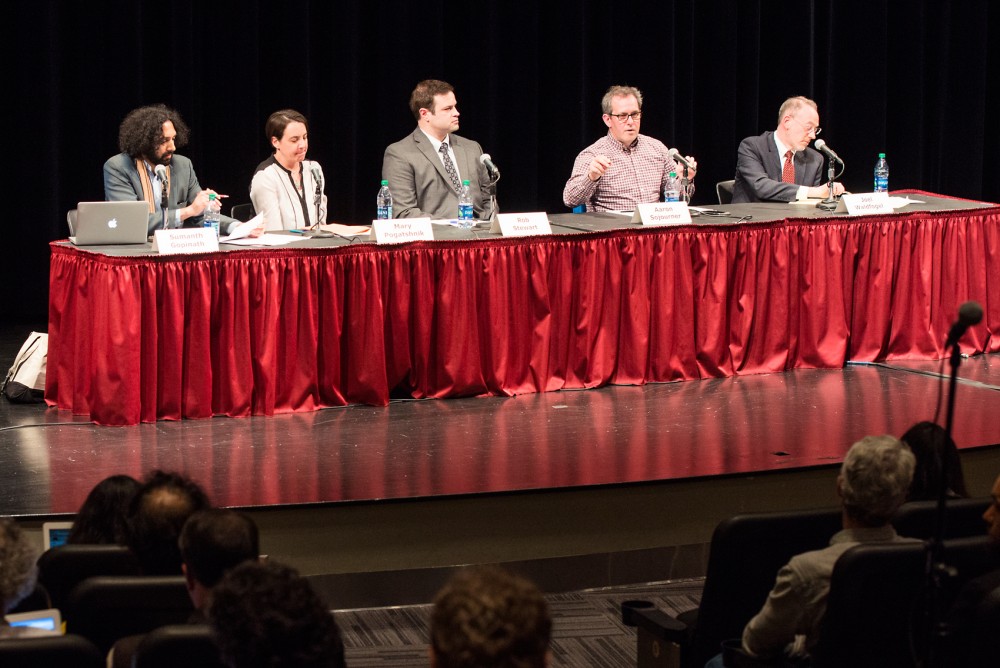Tempers flared as University of Minnesota faculty members voiced their opinions at a faculty unionization forum Monday.
A crowd of about 50 gathered at Coffman Union for the event, which was billed as nonpartisan and informational. But the forum turned combative when audience members used the question and answer period to confront perceived views of panel members.
The Faculty Consultative Committee and the Minnesota Daily co-hosted the forum where community members could send in questions, which were then selected by hosts for discussion. During the event, audience members could use an open mic to ask questions to the five-person panel.
“I have gotten [responses] from faculty members who are concerned about the balance of the panelists,” said Colin Campbell, chair of the FCC and associate professor in the department of pharmacology, before the event. He added that he tried to assuage those concerns of those faculty members.
“I hope people are respectful and the vibe is academic,” Campbell said before the event.
Of the five panel members, three said they had signed the petition in support of a union at the University. One had not signed, and the other member — graduate student and Chair of the Student Senate Robert Stewart — would not be eligible to join the union.
After panel members answered the pre-selected questions that were submitted before the event, the forum was open for questions from the audience. During that time, multiple faculty members openly criticized participants for their remarks.
Multiple audience members criticized panel member Joel Waldfogel, professor of strategic management and entrepreneurship at the Carlson School of Management, the only faculty panel member who had not signed the petition in support of the union.
“I think the reasons why people are for a union are for reasons why people are for equity and justice,” said sociology and global studies professor Michael Goldman. “There’s a lot of hypotheticals up here.”
Faculty members who stated that they signed the petition were largely immune from most of the criticism, not including Aaron Sojourner — an assistant professor in the department of work and organizations in Carlson.
Sojourner, who is an expert in labor studies, compiled a document on the possible effects of unionization. Economics professor Chris Phelan questioned some aspects of the document.
For example, Phelan pointed out that no other comparable research universities are unionized.
Sojourner acknowledged Phelan’s comment as true and reiterated the importance of everyone doing their own research about unionization.
“The election process is set up to allow employees to express their preferences,” Sojourner said. “You should make up your own mind about it, and you should do the research to figure out what you think.”
He went on to urge faculty members to remember that the opinions of Service Employees International Union and of the University’s administration on the matter are “legally irrelevant.”
Sumanth Gopinath, an associate professor in music theory, also said faculty members need to take the time to talk to one another about their opinions on unionization.
“I really want this to be normalized in some way, and the fact that it hasn’t been, at least in my impression so far, is something we should change,” he said.


